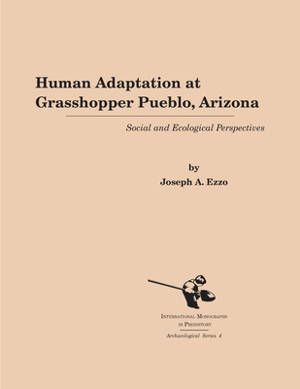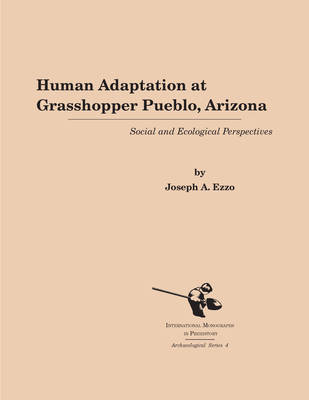
- Retrait gratuit dans votre magasin Club
- 7.000.000 titres dans notre catalogue
- Payer en toute sécurité
- Toujours un magasin près de chez vous
- Retrait gratuit dans votre magasin Club
- 7.000.0000 titres dans notre catalogue
- Payer en toute sécurité
- Toujours un magasin près de chez vous
Description
A detailed study of the bone chemistry of individuals buried at the 14th century Grasshopper Pueblo site is presented in this volume. A wide range of elements were measured from these skeletons as indicators of diet, stress, and nutrition; these elements were related to parameters of age, sex, social differences, space, time, environmental change, and possible resource depletion. The major relationships were found to be with sex, space, and time, with significant changes in male and female diets over time, but also with patterned spatial differences in burials, suggesting household differences in access to food. This is a data-rich study which provides much information for social and economic reconstructions of prehistoric Pueblo adaptation to their environment.
Spécifications
Parties prenantes
- Auteur(s) :
- Editeur:
Contenu
- Nombre de pages :
- 103
- Langue:
- Anglais
- Collection :
- Tome:
- n° 4
Caractéristiques
- EAN:
- 9781879621084
- Date de parution :
- 01-12-93
- Format:
- Livre broché
- Format numérique:
- Trade paperback (VS)
- Dimensions :
- 216 mm x 277 mm
- Poids :
- 294 g

Les avis
Nous publions uniquement les avis qui respectent les conditions requises. Consultez nos conditions pour les avis.






